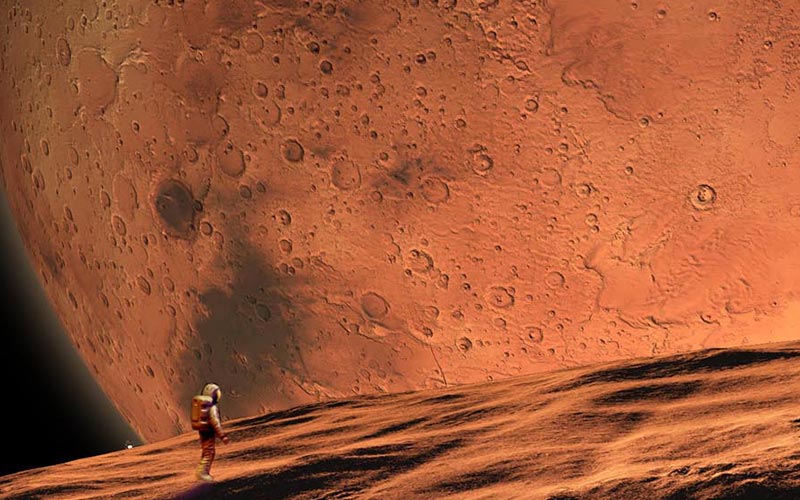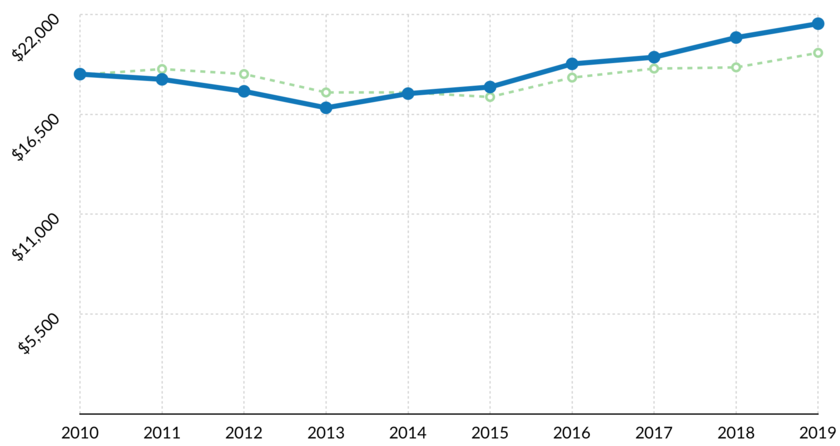Casey Dreier • February 15, 2019
Patience pays off for the space agency after months of delay
After months of unrelated political turmoil, multiple stop-gap spending bills, and an unprecedented government shutdown that shuttered the U.S. space program for 35 days, legislation providing NASA's 2019 budget was finally signed into law today. Remarkably, NASA did very well in the end.
Congress provided $21.5 billion to NASA in fiscal year 2019. That's a 3.5% increase from the previous year and 8% above that proposed by the White House. The additional funds were spread widely throughout the agency, particularly benefitting the science, aeronautics, and human exploration programs. Adjusting for inflation, this is NASA's best budget since 1996.
NASA's Earth Science Division once again escaped cuts, and actually slightly increasing funding to a record $1.931 billion. The Planetary Science Division reached extraordinary new budgetary heights at $2.8 billion, again directing significant resources to the Europa Clipper mission and $195 million for a yet-to-be-approved lander.
Despite receiving a legislative tongue-lashing on overruns on the James Webb Space Telescope, NASA received approval to increase the mission's cost cap by $800 million in addition to continued funds. WFIRST, the follow-on mission to JWST, was rescued from cancellation and received a strong $312 million funding commitment for 2019.
NASA's Education Division—originally zeroed out in the President's request—instead got a boost to $110 million and a name change to STEM Engagement.
The President's lunar initiative was widely supported by the Congress, with nearly all of its funding requests approved, though with a caveat that only 50% could be obligated before NASA provided a milestone-based schedule for a comprehensive lunar exploration program. The Gateway project received $450 million, slightly less than requested. Commercial payload services and the science-focused lunar discovery program both received full approval.
NASA's low-Earth orbit (LEO) commercialization proposal did not fare as well, receiving only $40 million compared to its $150 million request, directed toward a docking node on the ISS dedicated to "commercial activities".
Accounting for inflation, this is the best budget for NASA since the mid-1990s, and represents the fifth year in a row that Congress provided funding beyond that which was requested by the executive branch:
All dollar values are in millions.
Many Planetary Society priorities are included in this budget, particularly for Planetary Science. Missing was additional funding for Mars activities, though Mars Sample Return receives approximately $50M for project studies.
Though the Democratic party took control of the House of Representatives in January, this legislation is very similar to the draft NASA funding bills released last year under full Republican control. This is likely due to the short timeframe in which the congressional committees had to work with, the fact that this legislation was supposed to have passed before the Democrats took control anyway, and the higher level of bipartisan consensus around NASA. Absent the guiding hand of ex-House CJS committee chair John Culberson, things could look a lot different next time around.
Now that NASA has its funding for 2019, our eyes turn toward 2020. The White House is likely to release its formal President's Budget Request in March, at which point the whole process begins anew. Given the political animosity between the House of Representatives and the White House, the growing deficit, and the lack of a broad spending agreement in the Congress, we may look back and consider 2019 as a local maxima of budgetary support for the space program.
References:
Comments & Sharing

Let's Change the World
Become a member of The Planetary Society and together we will create the future of space exploration.

The Planetary Fund
Support enables our dedicated journalists to research deeply and bring you original space exploration articles.
Bagikan Berita Ini















0 Response to "NASA just got its best budget in decades - The Planetary Society"
Post a Comment